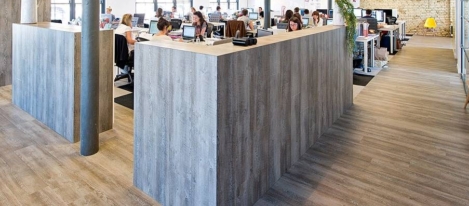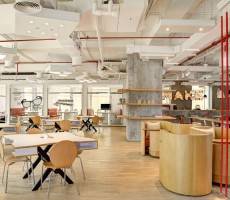July 9, 2015
London transport shuts down ….. agile workers unaffected …..
 London’s Financial Times reported this morning, “The worst London Underground strike in more than a decade saw millions of Londoners struggle to get to work”. It is chaos, here in the UK capital – the top global city in PwC’s Cities of Opportunity ranking. It is a sorry state of affairs, as in a scene reminiscent of 1970s union-crippled Britain, the “workers” representatives couldn’t agree with “the management”. “Workers” and “management”…we thought we had overcome that particular divide in business and society, didn’t we? But, some people have a vested interest in keeping it very much alive. In the large, industrialized, unionized industries such as transport, it lives on. Only last year, UNITE union leader Len McCluskey addressed his supporters in Liverpool as “sisters and brothers” like some mid-20th century socialist (which, of course, he is).
London’s Financial Times reported this morning, “The worst London Underground strike in more than a decade saw millions of Londoners struggle to get to work”. It is chaos, here in the UK capital – the top global city in PwC’s Cities of Opportunity ranking. It is a sorry state of affairs, as in a scene reminiscent of 1970s union-crippled Britain, the “workers” representatives couldn’t agree with “the management”. “Workers” and “management”…we thought we had overcome that particular divide in business and society, didn’t we? But, some people have a vested interest in keeping it very much alive. In the large, industrialized, unionized industries such as transport, it lives on. Only last year, UNITE union leader Len McCluskey addressed his supporters in Liverpool as “sisters and brothers” like some mid-20th century socialist (which, of course, he is).

















 TechNorth, the Manchester based technology hothouse devised as a regional counterbalance to London, is held in higher regard than the capital’s flagship TechCity development, according to research from recruitment firm Robert Half. The study of IT decision makers across the UK claims that the vast majority would prioritise working with Northern firms over their London counterparts, with 87 percent either ‘highly likely’ or ‘somewhat likely’ to place work with IT businesses in the TechNorth hub rather than those in TechCity London given the choice. The figure is 100 percent for IT leaders based in the North and to 95 percent for those in Scotland. More surprisingly, 80 percent of those based London and the South East said they would prioritise TechNorth, as did 75 percent in the South West and Wales.
TechNorth, the Manchester based technology hothouse devised as a regional counterbalance to London, is held in higher regard than the capital’s flagship TechCity development, according to research from recruitment firm Robert Half. The study of IT decision makers across the UK claims that the vast majority would prioritise working with Northern firms over their London counterparts, with 87 percent either ‘highly likely’ or ‘somewhat likely’ to place work with IT businesses in the TechNorth hub rather than those in TechCity London given the choice. The figure is 100 percent for IT leaders based in the North and to 95 percent for those in Scotland. More surprisingly, 80 percent of those based London and the South East said they would prioritise TechNorth, as did 75 percent in the South West and Wales.













July 14, 2015
Homeworkers left to fund their own technology by stingy bosses
by Sara Bean • Comment, Facilities management, Flexible working, News
(more…)